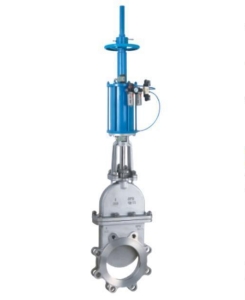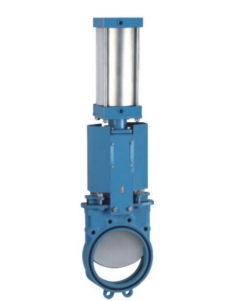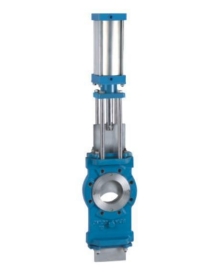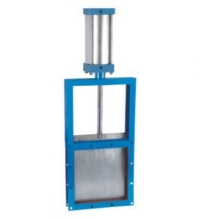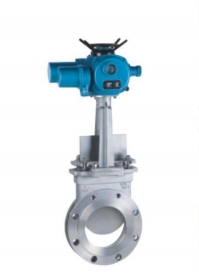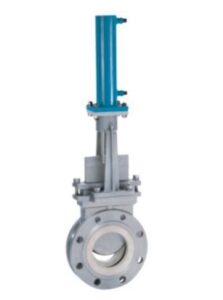
A control valve with an electric drive is a pipeline fitting designed for automatic control of the passing flow by changing the flow area of the valve. In addition to the electric drive, a control valve can be controlled by a thermal, thermoelectric, pneumatic, or hydraulic drive.
Electric control valves are representatives of reliable high-tech equipment of our production. BCST is one of the best manufacturers of differential pressure gauges and supplies an amount of material. Adjustment of the allowable level of instantaneous consumption.
Poppet and rotary type control valves control the flow of the working medium in a circuit or line. Today it is impossible to imagine a heat station without pipe fittings with electric drives and an automated control system for their operation. They cannot only reliably shut off the flow of hot water or steam but also precisely regulate the pressure and flow rate of the working medium, automatically reducing the equipment’s power during non-working hours. Read some fundamental questions about the electric control valve before ordering.
What is the working principle of the electric control valve?
The working principle and related knowledge of electric control valve: Electric temperature control valve: Due to different control objects in a system, a combination of multiple products is required to exert their best control performance. The four principles to be followed in selecting this product are safety, applicability, and reliability.
What are the uses of electric control valve?
Electric control valves are mechanical devices that use electrical signals to open and close. Valves are essential to many industrial and commercial applications, such as flow control, pressure control, and temperature regulation.
Electric control valves are typically used in applications where a high degree of accuracy and repeatability is required. Electric control valves come in various sizes and shapes and can be controlled by a Solenoid, Electric Motor, or Electric Actuator.
Electric control valves can be used with pneumatic or hydraulic control systems. Electric control valves are often used in high-pressure or high-temperature applications. Electric control valves are also used in hazardous applications where explosive or flammable materials are present.
Electric control valves can be actuated by various means, such as float switches, pressure switches, limit switches, or push buttons. In addition, electric control valves can be operated manually or automatically. Automatic operation is typically accomplished using a controller.

What are the characteristics of the electric control valve?
It is provided that the pressure difference between the two ends of the valve remains constant, the ratio between the relative flow of the medium passing through the electric control valve and its opening. The electric control valve’s flow characteristics include linear, equal percentage, and parabolic characteristics.
It combines an electric motor, a transmission mechanism, and a control system. Small-diameter valves are equipped with single-phase power elements of direct and alternating current, and control valves of higher power are equipped with three-phase asynchronous ones. The electric actuator of the valve allows you to control the parameters of the transported medium at a distance using a remote device.
It is used for valves equipped with one of the drives – solenoid or an electromagnetic clutch. Solenoid actuators are used to control on-off control systems represented by shut-off valves.
In devices with automatic control of the function of the actuating elements, electromagnetic friction or sliding clutches are used. The electromagnetic drive can be blocked or built-in and promptly responds to the applied signals.
The variety of options for completing electric drives allows us to produce devices for use in various fields. Their popularity is due to the actuators’ functional properties and technical characteristics.
What is the capability of the electric control valve?
The electric control valve is an automatic control valve, no external power is needed, and the temperature is controlled by adjusting the set point. As the temperature rises, the valve closes in proportion to the change in temperature.
The automatic operation control valve consists of a control valve and a thermostat (including a temperature sensor, a set point controller, a capillary tube, and a working piston), and the electric actuator depends on the application of different temperatures conditions.
The temperature control valve operates on the principle of liquid expansion. If the temperature at the sensor rises, the fill fluid will heat up and expand simultaneously. The electric control valve closes under the action of the working piston, and the medium is cooled at this time. You can adjust it step by step through the set key and read the electric two-way valve on the scale. Each thermostat is equipped with an overheat protection device.
Conclusion
Electric-control-valves are used in various industries to control the flow of liquids and gases. They are available in various sizes and designs and can be operated manually or automatically. Electric-control-valves are classified based on their construction, principle of operation, and application. Electric control valves are used in many applications, including flow control, pressure regulation, and temperature control. Electric-control-valves are essential to many automated systems and are used extensively in the oil, gas, and petrochemical industries. Electric-control valves have many advantages over traditional mechanical valves, including higher reliability, longer life, and lower maintenance costs.
If you want an electrical control valve for your application, you can use the services of BSCT or have any queries about our product line, and you can contact us at any time. Our professional engineers will be happy to assist you in the best possible way. You can email us at [email protected] or directly call us at our number +86-15052699328.

